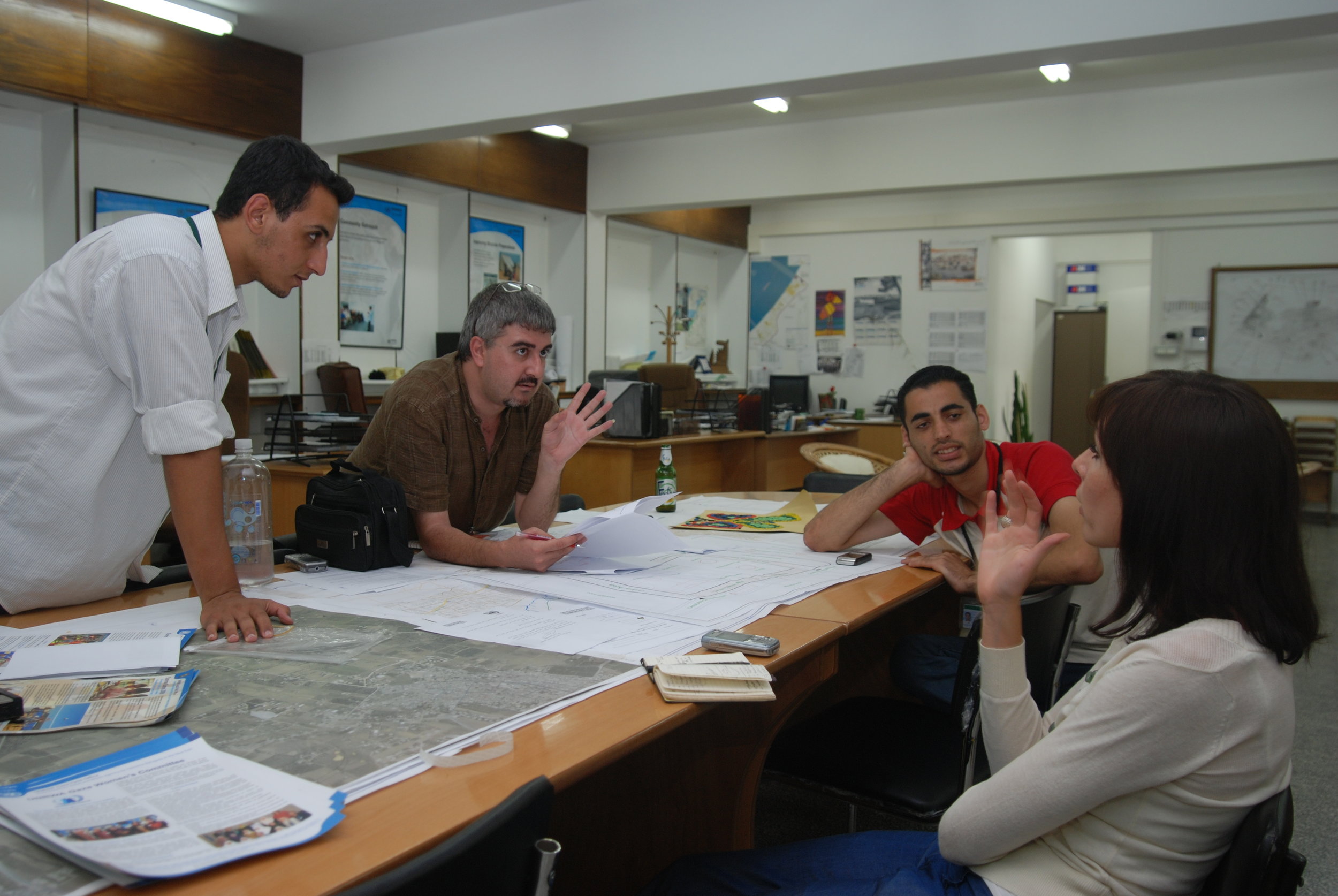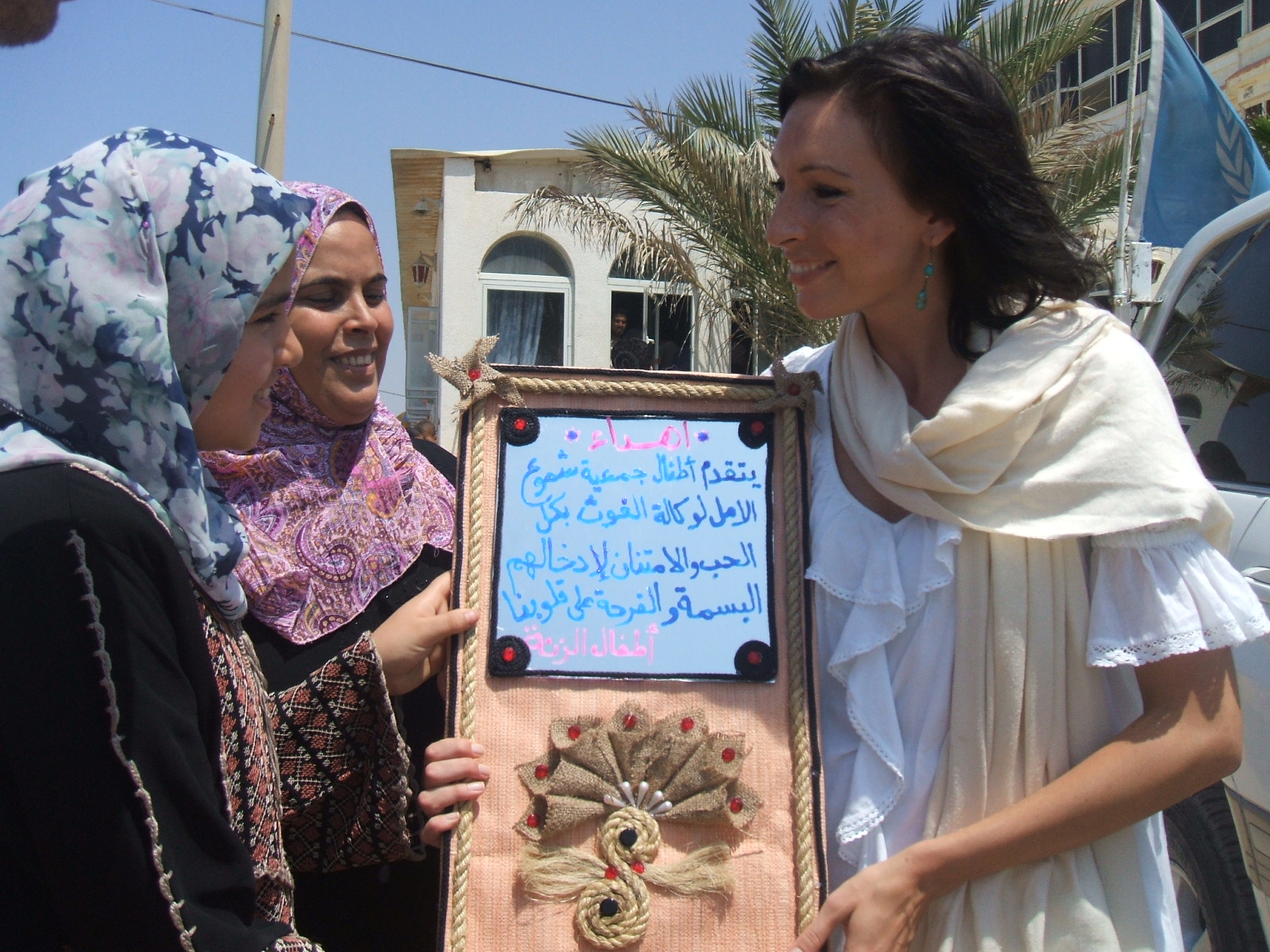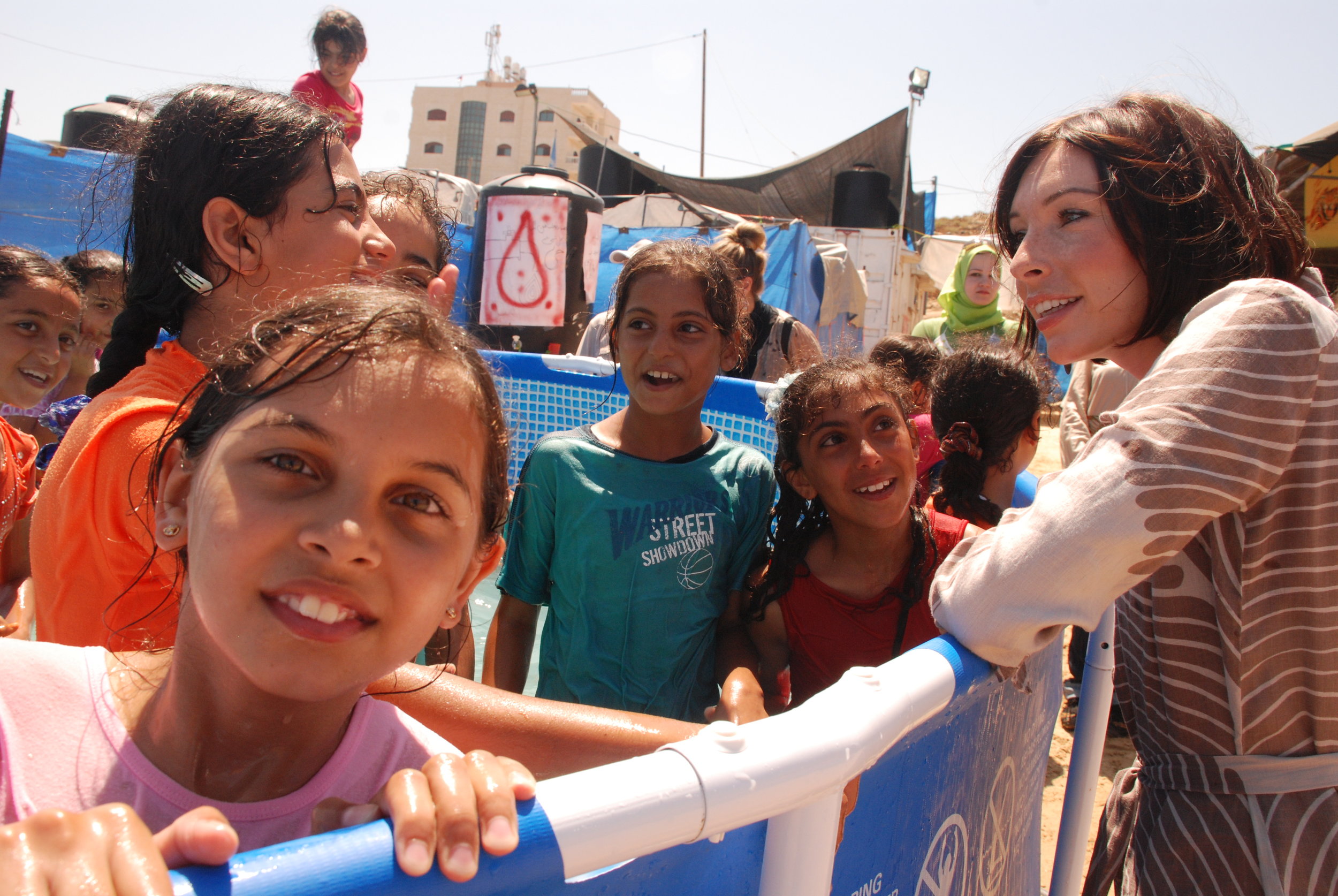Saskia Marsh
/Programme and Policy Advisor | Aktis Strategy Ltd, Various
Tell us about Aktis Strategy Ltd
Aktis is an advisory firm working with the governments of fragile states, primarily in the Middle East, North and East North Africa regions to help them address political and security challenges. We’re a private sector firm but we work with and are funded by governments. I lead programmes on behalf of Aktis that seek to counter violent extremism, alongside other roles.
How big is the organization?
It is quite small still, but it is growing rapidly. There are offices in London and in a number of the countries we operate in. Key requirements for a role in this type of organisation are an understanding of the challenges of operating in difficult parts of the world and an ability to creatively and pragmatically think through some of the solutions to those challenges. You also need to be the type of individual that's willing to get stuck into what can often be quite complex and seemingly intangible issues, be willing and able to navigate an often-tangled web of stakeholder dynamics – whether that’s policymakers, local partners, etc – yet still identify practical, concrete solutions. It’s about having high standards for what you want to achieve while recognising the pathway to getting results is not as linear as it might be in other industries.
You received a B.Sc from LSE, and you moved on to work for the Organisation for Security and Co-operation in Europe (OSCE) and the United Nations Relief and Works Agency for Palestine (UNRWA). You managed to be one of the youngest UN appointees ever. How would you describe your role at the UN, especially in Gaza?
When I started off I was in Kosovo a week after graduating from LSE, initially to complete a six-week internship with the OSCE Mission in Kosovo, which was part of the UN administration. However, while I was there I created a role for myself, and I ended up running a Kosovo-wide programme for minorities in to re-integrate them into the education system. And then from there, I became a Political Officer and it was through that role that I subsequently met and worked for the then Chief of Staff of the Mission. When he became the Director of UNRWA Operations in Gaza I followed him there.
13 years of experience
Education: BSc in International Relations at the London School of Economics | MBA at International Institute for Management Development (IMD)
Previously worked at: OSCE | UNRWA | Claridge Capital Partners | Critical Resource Ltd | European Institute for Peace
Currently: Foreign Policy Collective | Strategia Worldwide | Aktis Strategy Ltd | Citizens UK | UK Government’s Stabilisation Unit
Find Saskia Online: LinkedIn
Inspired by Saskia’s Interview? Apply for an internship at OSCE or UNRWA | Apply for an analyst position at Critical Resource Ltd or Aktis Strategy Ltd
Exclusive Interview with Aisha Babalakin on June 4, 2017
I think there's a lesson there. If you want to get into this line of work, you have to get your foot in the door and proactively create opportunities for yourself. Often, an internship is a good way to do that, and if you are motivated and hungry to make a difference there's usually somebody who'll give you the chance to take on a more substantive role. In any organisation, there are usually individuals who want to take on a mentorship role and want to support individuals that they see as having potential.
My role in Gaza was quite all-encompassing and again I think that's the wonderful thing about working in these difficult parts of the world – particularly if you have the support and encouragement of an inspirational mentor, which I did. For a young person, there are huge opportunities to carve out a substantial role for yourself and undertake tasks that you would not be given in a ‘normal’ environment. At 24, I was running a multimillion-dollar programme for 250,000 young people every summer in Gaza – basically half the young people in the territory. It ended up winning several Guinness World Records, had a substantial impact on social and political dynamics in Gaza and became a donor favourite. We even had Ban Ki-Moon and various celebrities become involved. Beyond that I took on other more hands-on roles (e.g. overseeing emergency aid during military incursions) as well as strategic work (such as negotiating on the UN’s behalf with the Israeli authorities during the 2008 war to shaping policy on Gaza, to assisting with organisational reform of an operation with 10,000 staff providing services to 800,000 individuals). So I got to see and do things that many 50-year-olds, let alone 24-year-olds, don't get to do - it was really a once in a lifetime opportunity. From then I went to Lebanon for a year with UNRWA and helped put in place many of the same reforms we had implemented in Gaza and again had the great privilege of working for another inspirational Director. I got to see all the decisions the top boss had to make, without any of the responsibility – a wonderful learning process.
That's very impressive, and I'm always happy to see when people create roles for themselves out of something that didn't really exist before because I find the roles that you do actually enjoy aren't the ones that are posted on a job bulletin board.
Had you worked on such education programmes while you were at LSE? Did these help you prepare for your work in Kosovo, Gaza, and Lebanon?
Not so much. I don't think you can ever prepare yourself for these kinds of roles; you simply must be willing to take the risk of doing them and to put in the work necessary to achieve some form success. It is not about a specific technical skill or a theoretical model that can be applied – for me it’s more about determination and a recognition that it’ll take blood, sweat, and tears to achieve something really special. And it’s about learning from those around you – most of my colleagues were at least ten years older than me, which was an amazing learning opportunity.
You must learn to work with the team around you - and different personalities and skillsets - to get the results that you need. Again that is not necessarily a skill that can be taught at university; you learn it through experience and from good role models. And I was very lucky because I had incredible leadership. I had a boss who reinforced and encouraged my self-belief to take on these challenges but also corrected me where I was going wrong. He really taught me the importance of balancing out my determination and stubbornness to ‘get things done’ with the need to bring others along with me. This, in my experience, is the art of real leadership and is more likely to lead to longer-term results.
Why did you decide to return to university to do an MBA? What contributed to that decision?
I started with the UN at a young age and at 28 I thought it had been a wonderful experience for me but, I didn’t want to narrow my horizons too early in life. I also wanted to understand what the private sector could offer in terms of addressing big political and social challenges. Are there approaches, tools and methodologies in the private sector that can be usefully brought to bear on these issues? So rather than go and do another political science type degree, I decided to do an MBA.
I also thought an MBA might provide a different skill set because I think that whatever sector you go into, success ultimately comes down to the management of yourself and your team. If you learn how to lead and manage effectively, then you are more likely to achieve the results you are aiming for. One of the downsides of the international diplomatic experience is that there aren’t enough professional development opportunities. An across all sectors – public and private - I've seen individuals who are technically brilliant but don't understand management.
Why did you decide to join private practice after your MBA?
I became interested in social investment and the concept of both financial and social returns, and the idea of ‘shared value’. This is when you have a business opportunity that is there to be pursued but, you're also cognizant of the social impact that you want to have. I experimented with that for a little while. I subsequently got into the political risk space and started doing consulting work for firms that were looking at political issues and how those might affect their investments in fragile parts of the world. I spent a few years then advising mining and oil and gas companies on these issues and this took me again to some interesting parts of the world such as the Democratic Republic of Congo and Mauritania.
I was there until a couple of years ago when I decided then I wanted to get back into a more hands-on role dealing with political and security issues, which has taken me to my current role. Alongside my work at Aktis, I am also a member of the UK Government Stabilisation Unit. It is a cross-departmental unit which sits across the Foreign Office, the Department of International Development, and the Ministry of Defence. This enables me to deploy on short-term missions. I recently did a piece of work with them in the Balkans to assess UK government work in the region and I’ve also been advising a Commission here in the UK looking at reasons behind the lack of engagement and participation by British Muslims in the UK political/civic life. For me it was important to take some of the experiences I've had abroad and my international work on conflict resolution and community engagement and apply it in my own backyard, so to speak. The lack of trust between non-Muslim and Muslim communities in the UK has been growing, and that should be of concern to us all.
You get to tackle the issue from almost three different points: at Aktis, with the UK government, and with the general community. From what I understand a lot of your work has to do with stabilising regions and working with issues to do with extremism. Is that correct?
Yes, exactly. The issues of extremism, violent extremism and terrorism are obviously some of the major challenges of our time - not least when we look at the recent attacks in London and Manchester. But it also interests me because it's an area in which women are underrepresented. I think having more women work in this sector would be a good thing. If you want to counter extremism, in all its shapes and forms, you have to understand human dynamics and behaviour, and often women are actually very good at that. You need to be able to combine both so-called ‘hard’ security approaches - policing/intelligence/counterterrorism operations but also employ at so-called ‘soft’ approaches. How do you involve communities, mothers, etc in identifying individuals who might be at risk of becoming radicalised and via them intervene before it becomes too late? How do you galvanise communities to counter poisonous ideologies? There are no quick fixes and all of this is long-term work. I've found that some of the most impressive individuals who work on these types of issues are women. Because you have to be able to put yourself in the shoes of the individuals you are seeking to engage with even if you absolutely disagree with what they stand for, and you also have to put your own ego to one side. I don't want to over generalise but, quite often women are less ego-driven and just happy to just get on with the work – another reason why I think women are an asset to this space.
In your opinion, how do you think this field of work will evolve in the next five to ten years? Do you feel like integration is working, or are we moving towards a more isolationist approach to immigrant communities?
That is a big question for a Sunday afternoon. In my view, human nature and societies are cyclical. And so, we tend to become more integrationist at some points and then fall back into more isolationist stances. We see a growing divide between those who think an isolationist approach is more productive and those who are continuing to advocate for greater integration. You see more extremist stances on both the political left and right and fewer willing to take a more pragmatic middle ground. This is a common pattern in times of political, social and economic upheaval. Globalisation has produced benefits for many but has also produced change at a pace that many individuals in society find uncomfortable. I think the harsh truth is that there's always going to be conflict and instability, it's unfortunately in human nature for us to seek conflict or to apportion blame on a group of people that are different to us. I think the fundamentals won't change, but I like to think that we occasionally learn lessons and apply them.
How did you get involved with Citizens UK and working with the communities here in the UK?
Citizens UK was the convening body behind the Commission on Islam and Public Participation and the Commission is made up of the number of individuals across the political spectrum, key figures in public life in the UK who are not just from the Muslim community. I came on board as an advisor and this came about because I got in touch with the East London Mosque, the second largest mosque in the UK, which is based in my neighbourhood.
If you feel strongly about something, and you feel that you want to get involved, there are always opportunities to do so. And it doesn't have to be a big grand act. You can start engaging literally in your own neighbourhood to get involved in an issue that you think is important.
My final question for you is do you have a role model? And if so who is it or who are they?
If by “role model”, you mean the kind of boss that I aspire to be, then it is my UN boss in Gaza, John Ging, who was a very inspirational role model for me and for many others in terms of his leadership style, courage, and determination.
But, then there are many, many other nameless individuals that have been key role models for me. When I start to whine about the less important things in life, I remind myself that these individuals, under great personal threat and subject to great personal sacrifice, continue to carry on with the work they think is vital to their communities. They are the unsung heroes in many conflicts, the ones that don’t make it onto the BBC. It's the humble guard at the school gate who stopped armed groups from coming into the school. It's the local NGO activist who speaks up against violence or corruption when others around them are advocating or perpetuating the opposite. It's those sorts of individuals who stand up every day for what they think is right and don't expect any recognition for it but do so regardless.





